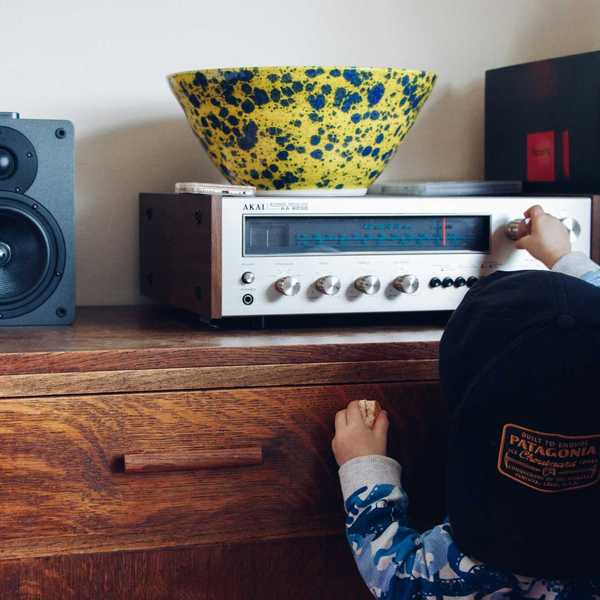Obituaries: Sweet Daddy Siki Was a Pro Wrestler, Country Singer and Local Toronto Legend
This week we also acknowledge the passing of Canadian jazz guitarist Peter Leitch, roots singer-songwriter Don Nix, soul star Brenton Wood and Wayne Osmond of The Osmonds.

Sweet Daddy Siki
Sweet Daddy Siki (born Elkin James), a Toronto-based American-Canadian professional wrestler and singer, died on Dec. 31, at age 91, of complications of Alzheimer's disease.
Country music authority Larry Delaney informs Billboard Canada that "Sweet Daddy Siki was better known and more successful as a champion professional wrestler than a country music singer, but he did have a special flair for both ventures."
"His wrestling career brought him to Toronto in 1961, where he made the 'Big City' his home-base, but he travelled across North America as a wrestler. While in Toronto he also pursued his varied entertainment interests, including his talent as a country music singer, recording a debut album, Squares Off With Country Music, released in 1972.
"Produced by ARC Records resident studio man Ben Weatherby, the album contained a dozen 'cover versions' of Nashville's classic songs of the time, as well as the Ben Weatherby composition 'Bottles Lights & Music' and 'Lost Love,' a song penned by Ottawa Valley Hall Of Famer, Mickey McGivern."
Siki performed with his country & western band in Toronto and beyond and worked extensively as a karaoke DJ at The Duke on Queen Street East, Toronto. He wrote his own wrestling theme song entitled "I Am So Proud of What I See."
As a wrestler, Siki was a top draw in Canada in the 1960s and 1970s. At his peak, Siki was a main card attraction at Maple Leaf Gardens, where he wrestled from 1962 to 1980. In the 1970s, Siki wrestled two well-known radio and television hosts in Toronto: CHUM radio's Terry Steele and CityTV's Gene Taylor. Besides Canada, Siki wrestled across the United States, and in Australia, New Zealand, Japan, Puerto Rico and the Caribbean.
His status as a colourful local legend is reflected in the fact that two notable Toronto bands recorded tributes to him. An album by The Henrys, Chasing Grace, contains a song titled "Sweet Daddy Siki," while Porkbelly Futures featured him on their second album with the song "Sweet Daddy."
The Henrys leader, Don Rooke, tells Billboard Canada that he never met Siki, but was taken by the name. "I remember seeing some of those matches on TV," says Rooke. "The wrestlers’ names and personas from that era were so memorable. Little Beaver, Lord Athol Layton, Whipper Billy Watson… sometimes in clubs you see old posters of them. It felt like a culture that deserved to be remembered."
Peter John Leitch , an acclaimed Canadian jazz guitarist, died on Dec. 30, at age 80.
Leitch started playing guitar in his teens., accompanying acts at clubs in Montreal and then Toronto. He recorded with Sadik Hakim in the early 1970s, worked with Milt Jackson, Red Norvo, and Kenny Wheeler in the late '70s and went on tour with Fraser MacPherson in the Soviet Union. He was also a member of the Al Grey-Jimmy Forrest quintet.
In the early 1980s Leitch moved to New York City, where he played with such jazz notables as Gary Bartz, Jaki Byard, Ray Drummond, John Hicks and Smitty Smith. He recorded with Pepper Adams, Jeri Brown, Dominique Eade, Oscar Peterson, Woody Shaw, Jaki Byard and Pete Yellin.
He released his first solo album in 1982, and released 18 more albums as a bandleader or co-leader, including three for Concord Jazz. In 2013, he published an autobiography, Off the Books: A Jazz Life.
Leitch announced his retirement in July 21, 2015, on Facebook, noting that "due to a series of medical issues it is extremely unlikely that I will ever play the guitar again." He did, however, begin arranging and composing music for a 12–14 piece ensemble. The Peter Leitch New Life Orchestra, which performed in NYC.
On Facebook, leading Canadian jazz journalist and author Mark Miller offered this tribute to Leitch he had written some years ago: "Peter Leitch, a Canadian in New York since 1982, has been something of an anachronism among the jazz guitarists of his generation, a purist for whom the great bop stylists of the 1950s are rarely more than a quick, over-the-shoulder glance away.
"Not for Leitch the more recent temptations of his chosen instrument; not for him the technical and technological excesses that have become so routine. His technique is in fact exemplary, if understated, and he employs it to almost orchestral effect in matters of melody, harmony and rhythm — not each in turn but all moving intricately together.”
International
Don Nix, the Memphis-based American singer, songwriter, producer and author who worked with George Harrison and Leon Russell and was once a member of Stax band The Mar-Keys, died on Dec. 31, at age 83.
In its obituary, Memphis newspaper The Commercial Appeal noted that "a member of the early Stax group The Mar-Keys, Nix went on to a prolific career as a songwriter, producer and arranger. His blues anthem 'Going Down' would become a standard of the genre, and Nix produced acclaimed albums for Freddie King, Albert King, Jeff Beck and Furry Lewis, and he also worked with The Beatles' George Harrison on The Concert for Bangladesh. One of the true architects of Memphis soul and R&B, Nix became a significant international presence in music while remaining rooted in the rich silty sediment of the Mississippi River bluffs of his hometown."
Nix was a charter member of The Mar-Keys, playing saxophone in the pre-Booker T. & the MG's Stax house band — whose members included guitarist Steve Cropper and bassist Donald "Duck" Dunn. That group had one of the label's first big hits with "Last Night" in 1961. After leaving The Mar-Keys and following a stint in the Army, Nix ventured out to Hollywood where he worked with Leon Russell on projects for Gary Lewis & the Playboys and Delaney & Bonnie.Nix would later produce or arrange sessions for such artists as Carla Thomas, Isaac Hayes, Freddie King and Charlie Musselwhite, as well as Russell himself, who eventually signed Nix to his Shelter Records label.
Nix’s 1969 composition "Going Down" became a classic later covered by King, Jeff Beck, Deep Purple and Sturgill Simpson. Nix released a series of well-regarded solo albums during the first half of the 1970s, and would continue to make solo records for the Cream label, though his work in the studio — both as an artist and producer — would tail off in the 1980s and 1990s. In 2002 Nix released a set of new recordings of his old songs, titled Going Down, which featured appearances by Steve Cropper, Tony Joe White, John Mayall and Queen’s Brian May, among others. Nix returned to the studio for several more albums including “I Don’t Want No Trouble” in 2006 and “Passing Through” in 2008.
In addition to his musical work, Nix was an accomplished photographer. The Commercial Appeal reports that "Nix’s intimate images captured some of the world's most famous musicians — various Beatles, bluesmen and soul stars — in relaxed, unguarded moments and in a wide variety of settings. Nix exhibited his photos several times over the years, most recently in 2019 at the Stax Museum."
He also published published two books: 1997’s memoir--cookbook, Road Stories and Recipes, and the 2015 autobiography Memphis Man: Living High, Laying Low.
He was honoured in his hometown with a Brass Note on Beale in 2022 and was elected to the Memphis Music Hall of Fame in 2023, where he was inducted by British rock legend Peter Frampton.
Wayne Osmond, the second-oldest of the legendary family group Osmond Brothers, died on Jan. 1, at age 73, following a stroke.
As reported in a Billboard obituary, Wayne, one of nine Osmond siblings, started a barbershop quartet in 1958 alongside his brothers Alan, Merrill and Jay. After getting discovered from a Disneyland performance, the boys were cast over a seven-year period on NBC’s The Andy Williams Show beginning in 1962.
When brothers Jimmy and Donny joined the group, they became known as the Osmonds and were the standout teen idols throughout the 1970s.
The Osmond family was honoured with a star on the Hollywood Walk of Fame in 2003.
Brenton Wood (born Alfred Jesse Smith), a U.S. soul singer-songwriter who scored two major hits in the '60s, died on Jan. 3, at age 83.
Born in Louisiana, Wood saw his career take off in 1967 with the release of Oogum Boogum, his debut album that featured the playful title track, which hit the R&B Top 20.
His next single, “Gimme Little Sign” (with the catchy refrain “Just Give Me Some Kind of Sign, Love”), launched him into stardom when it became an international Top 10 hit
in 1972, Wood formed his own record label and released, co-produced and co-wrote the funk soul classic "Sticky Boom Boom [Too Cold] Part I and II" with collaborators George Semper and Al McKay. Subsequent singles "Rainin' Love (You Gotta Feel It)" and 1977's "Come Softly to Me" received moderate attention
Subsequent albums included Out of the Woodwork (1986) and This Love Is For Real (2001). A farewell tour, Catch You On The Rebound: The Last Tour, was announced last year.
















